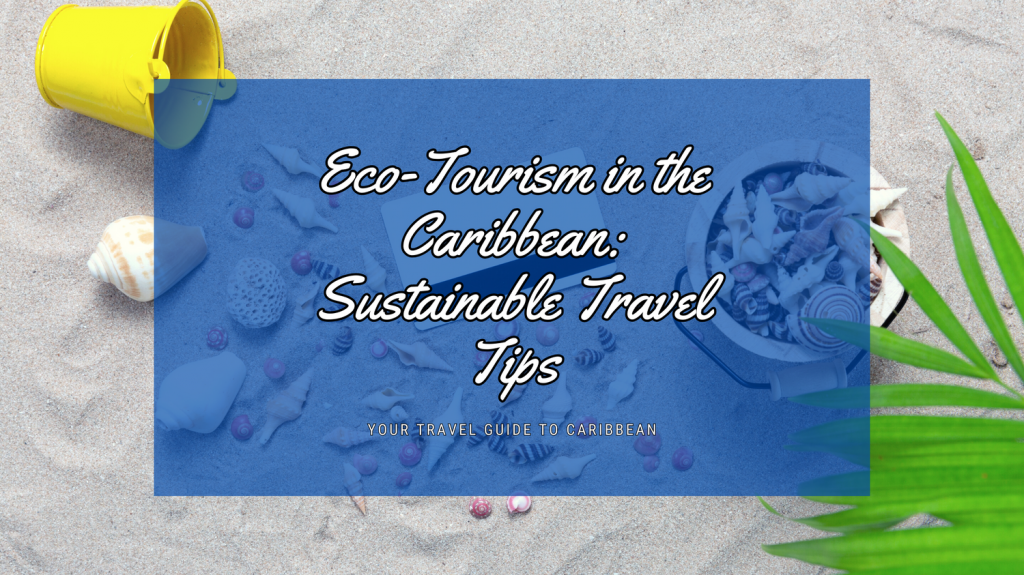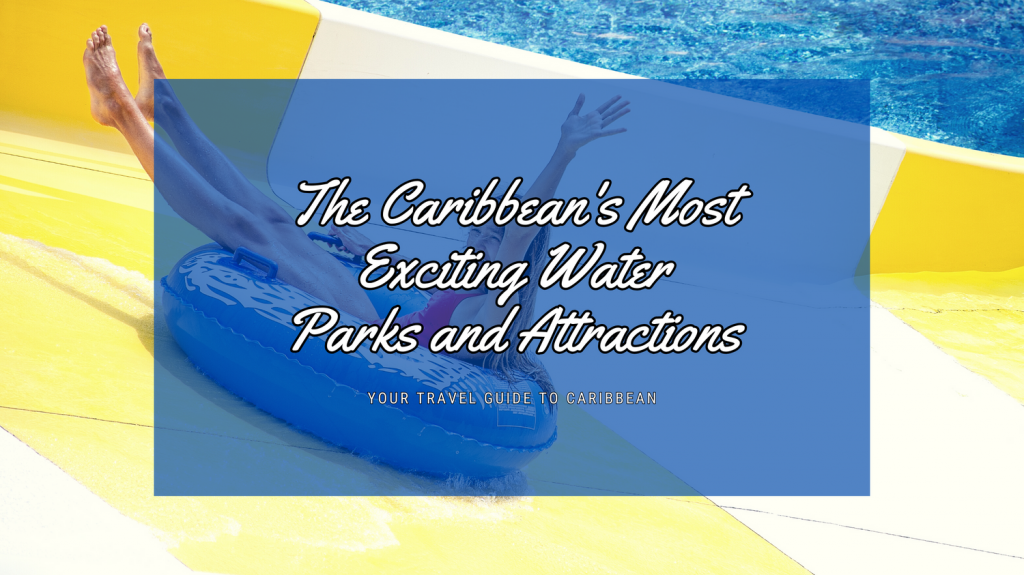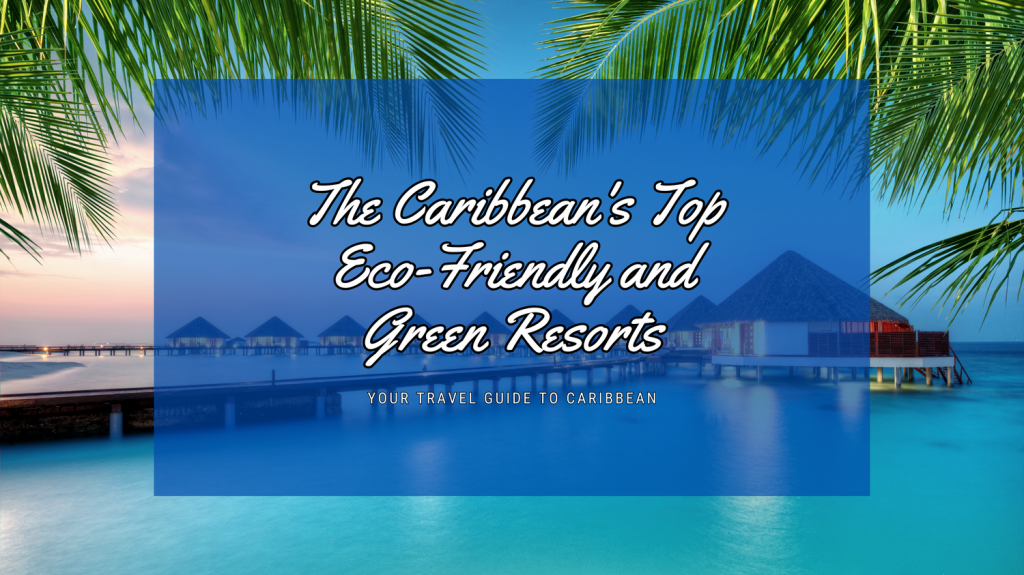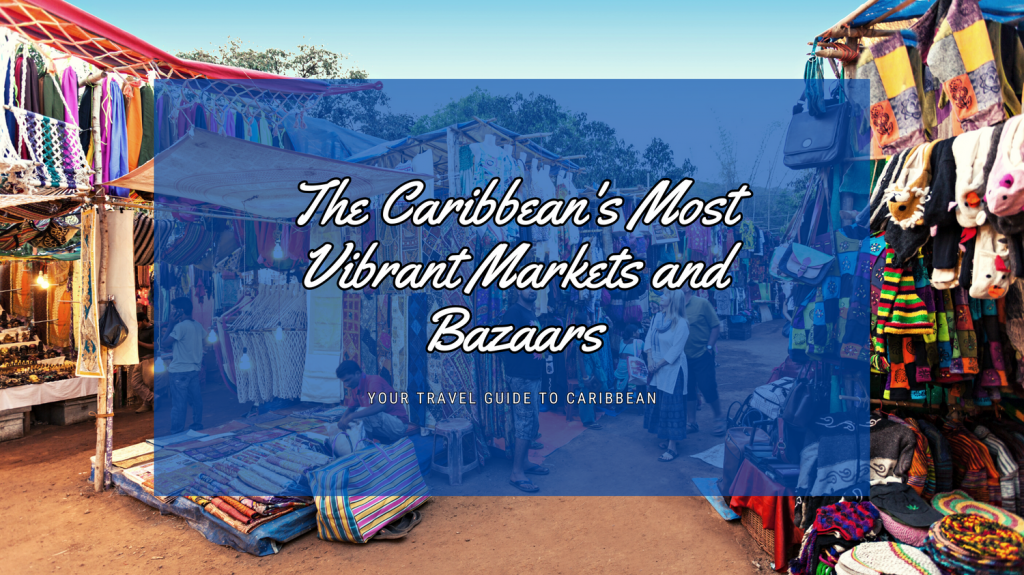Hey there, eco-warriors! 🌿 Ready to swap your carbon footprint for sandy footprints? The Caribbean is not just a paradise for beach bums and water sports enthusiasts; it’s also a haven for sustainable travelers. Let’s dive into how you can explore the Caribbean’s natural beauty while keeping your impact minimal.
Why Eco-Tourism in the Caribbean is a Big Deal
The Caribbean is more than just a collection of postcard-perfect beaches; it’s a biodiverse hotspot with unique ecosystems that need protection. Eco-tourism isn’t just a buzzword here; it’s a way of life that helps preserve the region’s natural and cultural heritage. By choosing to travel sustainably, you’re not only treating yourself to an authentic Caribbean experience but also contributing to local communities and conservation efforts.
Eco-Friendly Accommodations: Sleep Sustainably
When it comes to laying your head down at night, consider eco-friendly accommodations like eco-lodges, green hotels, or even homestays. These places often use renewable energy, have waste recycling programs, and contribute to local conservation projects. For instance, the Ecolodge Rendez-Vous in Saba is entirely solar-powered and offers rainwater showers, making your stay both comfortable and conscientious.
Sustainable Transportation: Getting Around the Green Way
While it might be tempting to zip around in taxis or rental cars, consider greener options like public transport, cycling, or even walking. Many Caribbean islands are small enough to explore on foot or by bike, offering you a more intimate experience of the local landscape. If you must fly between islands, look for airlines that offset their carbon emissions.
Local and Organic Dining: Eat Like a Local, Sustainably
One of the joys of traveling is indulging in local cuisine. Opt for restaurants that source their ingredients locally and sustainably. Not only does this reduce the food’s carbon footprint, but it also supports local farmers and fishermen. From farm-to-table eateries in Barbados to organic coffee farms in the Dominican Republic, the Caribbean offers a plethora of sustainable dining options.
Nature Reserves and Protected Areas: Where to Go
The Caribbean is home to numerous nature reserves and protected areas that focus on conservation and education. Places like the Bonaire National Marine Park in Bonaire or the Morne Trois Pitons National Park in Dominica offer eco-friendly activities like guided tours, bird-watching, and snorkeling that educate visitors about local ecosystems while minimizing human impact.
Community-Based Tourism: Engage with Locals
One of the most rewarding aspects of eco-tourism is engaging with local communities. Participate in community-based tourism initiatives that empower locals and contribute to social well-being. Whether it’s taking a cooking class in a local home in Jamaica or participating in a community clean-up in Trinidad, your involvement makes a difference.
Shop Smart: Souvenirs That Matter
When it comes to souvenirs, opt for locally-made crafts and products that support local artisans and are made from sustainable materials. Avoid buying items made from endangered species or that contribute to habitat destruction. Remember, the best souvenirs are those that have a story and make a positive impact.
Final Thoughts: Be a Conscious Traveler
Eco-tourism in the Caribbean is not just a trend; it’s a meaningful way to travel that benefits both you and the destinations you visit. By making mindful choices, you’re helping to preserve the Caribbean’s incredible natural beauty and rich cultural heritage for future generations to enjoy.





